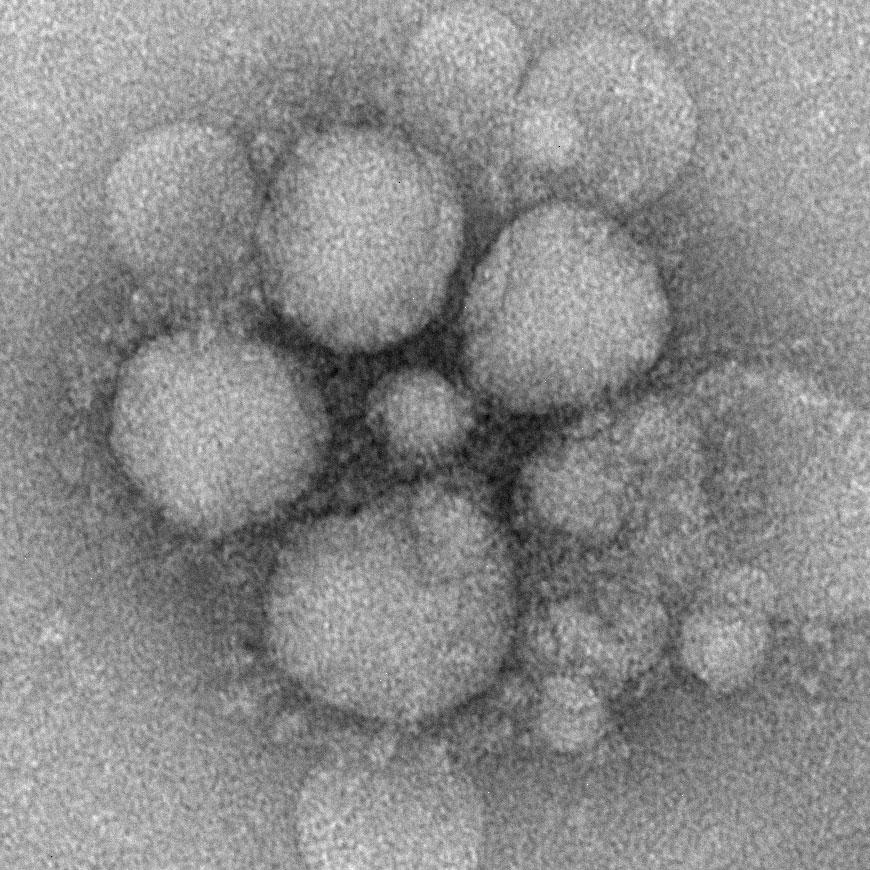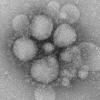Saudi Arabia, epicenter of MERS-CoV (Middle East respiratory syndrome coronavirus) outbreaks, reported three more cases today, one of them fatal, while media reports said French authorities ruled out two suspected cases.
Meanwhile, a Canadian expert who recently traveled to Saudi Arabia to help investigate the cases there said more international collaboration will be needed to figure out the source of the virus, according to a Canadian Press report.
In a brief statement today, the Saudi Ministry of Health (MOH) said a 21-year-old "resident" of the country died of a MERS-CoV infection and that two Saudi citizens are sick. The 21-year-old was living in Hafr Al-Batin, a city in the Eastern province but about 300 miles north of Al-Ahsa, site of a recent hospital-centered outbreak.
The young man died after being admitted to a hospital intensive care unit (ICU) at the beginning of this week, the MOH said. The ministry did not list his home country or give any other details about him. World Health Organization (WHO) officials have expressed concern that guest workers from developing countries such as the Philippines could contract the virus in Saudi Arabia and carry it back home.
The MOH said one of the other new cases involves a 63-year-old Saudi woman who lives in the Eastern region, has chronic diseases, and is in stable condition. The third case, the statement said, is in a 75-year-old Saudi who lives in Al-Ahsa governorate and is being treated in an ICU. The patient, whose gender was not listed, also has chronic health problems.
The three illnesses raise Saudi Arabia's MERS-CoV count to 43 cases and 27 deaths. Unofficially, they raise the global total to 58 cases and 33 deaths.
In France, MERS-CoV was ruled out in illnesses in two men who had recently been in Saudi Arabia, according to reports from Agence France-Presse (AFP) and other media outlets. The suspected cases were first reported yesterday.
"The virus was quickly ruled out as an explanation for the symptoms of one of them, and tests cleared the other one," the AFP story said. The men were reported to be hospitalized in Tours.
France has had two confirmed MERS-CoV cases, with one death. The first and fatal case was in a man who got sick after vacationing in Dubai in April; another man caught the virus while sharing a hospital room with him.
In Canada, Allison McGeer, MD, a Toronto infection control expert, said a greater international effort will be needed to learn where MERS-CoV hides in nature and how it makes its way into humans, according to the Canadian Press report, published yesterday.
McGeer was part of a team led by the WHO that returned from Saudi Arabia Jun 9 after spending several days investigating the MERS-CoV situation.
Daniel Jernigan, MD, MPH, of the US Centers for Disease Control and Prevention (CDC) was also part of the team, but he couldn't discuss the mission, CDC officials told CIDRAP News yesterday.
McGeer said the Saudi government has done much to investigate MERS-CoV cases involving human-to-human transmission and sporadic cases, "but it's very clear that a great deal more work needs to be done," according to the Canadian Press story.
Among the more than 50 MERS-CoV cases so far, a good share have resulted from person-to-person transmission, and relatively few apparently resulted from contact with the virus's source in nature, McGeer said. Disease detectives must investigate the latter to identify the source.
Because those cases are spread over several countries, coordinating the search has been difficult, McGeer said.
In other comments, McGeer said it appears that the hospital-based MERS-CoV outbreak in the Al-Ahsa region may be over, though a risk for more cases still exists in one facility.
Saudi officials have publicly acknowledged an outbreak in only one or two hospitals, but McGeer said person-to-person transmission actually has occurred in several hospitals. She added that the outbreak seems under control in most of the hospitals, without saying how many are involved.
In other developments, the CDC is asking airline employees to inform the agency of any sick travelers arriving in the United States from countries in and near the Arabian Peninsula. Those include Bahrain, Iraq, Iran, Israel, Jordan, Kuwait, Lebanon, Oman, Palestinian territories, Qatar, Saudi Arabia, Syria, the United Arab Emirates, and Yemen.
Airlines should report cases as soon as possible, and before arrival, says the CDC statement, which was updated Jun 10. Patients should be reported if they have a fever (100°F or higher) or report feeling feverish and also have a cough or difficulty breathing, the agency says.
Also today, a WHO official denied a report that the agency recommends wearing a mask as protection against MERS-CoV. Media spokesman Gregory Hartl issued the denial via Twitter, after an International Business Times story quoted a British professor as saying the WHO advises wearing a mask.
Hartl said the WHO "has never recommended wearing masks for MERS-CoV."
The comments come amid worries that the spread of MERS-CoV could accelerate in July, when millions of Muslim pilgrims are expected to visit Saudi Arabia during Ramadan, a month of fasting and other special observances.
The WHO warned 2 days ago that healthcare workers worldwide should be aware of MERS-CoV and should consider it when they see unexplained cases of pneumonia. The recommendation was part of a statement about the WHO-led team's visit to Saudi Arabia.
See also:
Jun 12 Saudi MOH statement
Jun 12 AFP story
Jun 11 Canadian Press story
CDC guidance for airline workers (updated Jun 10)




















